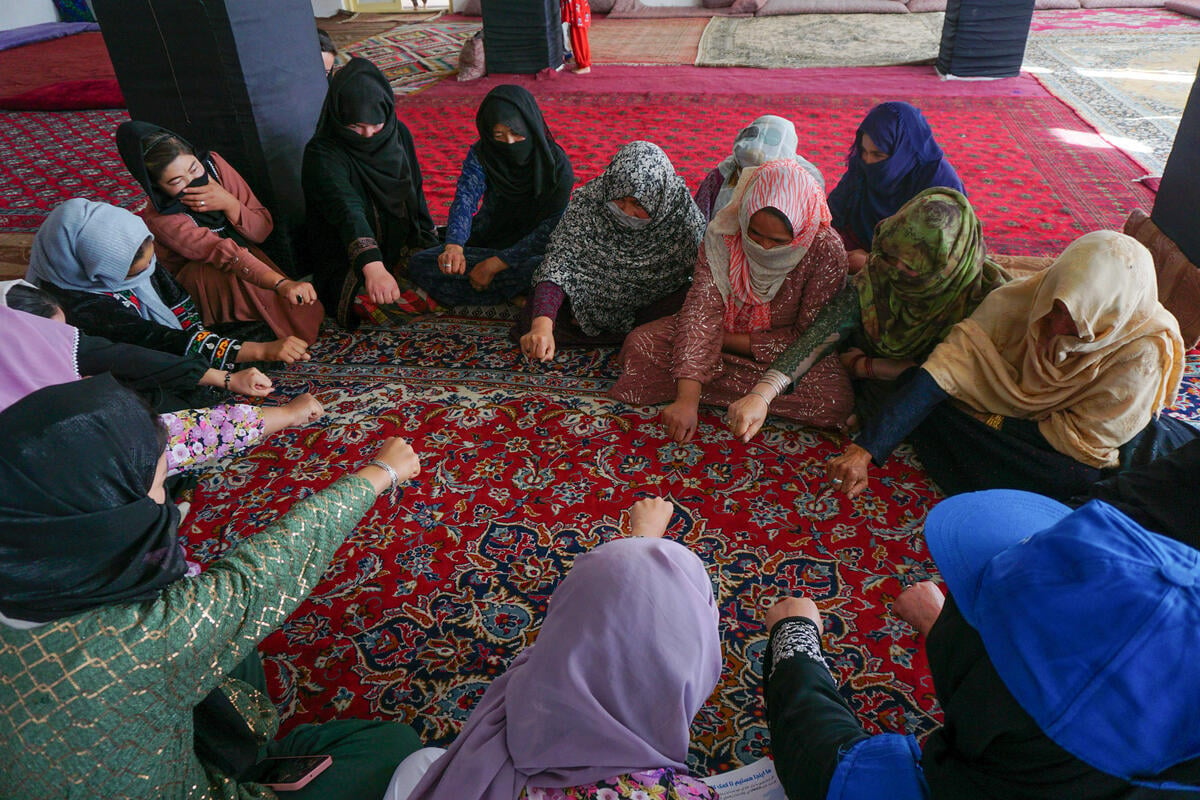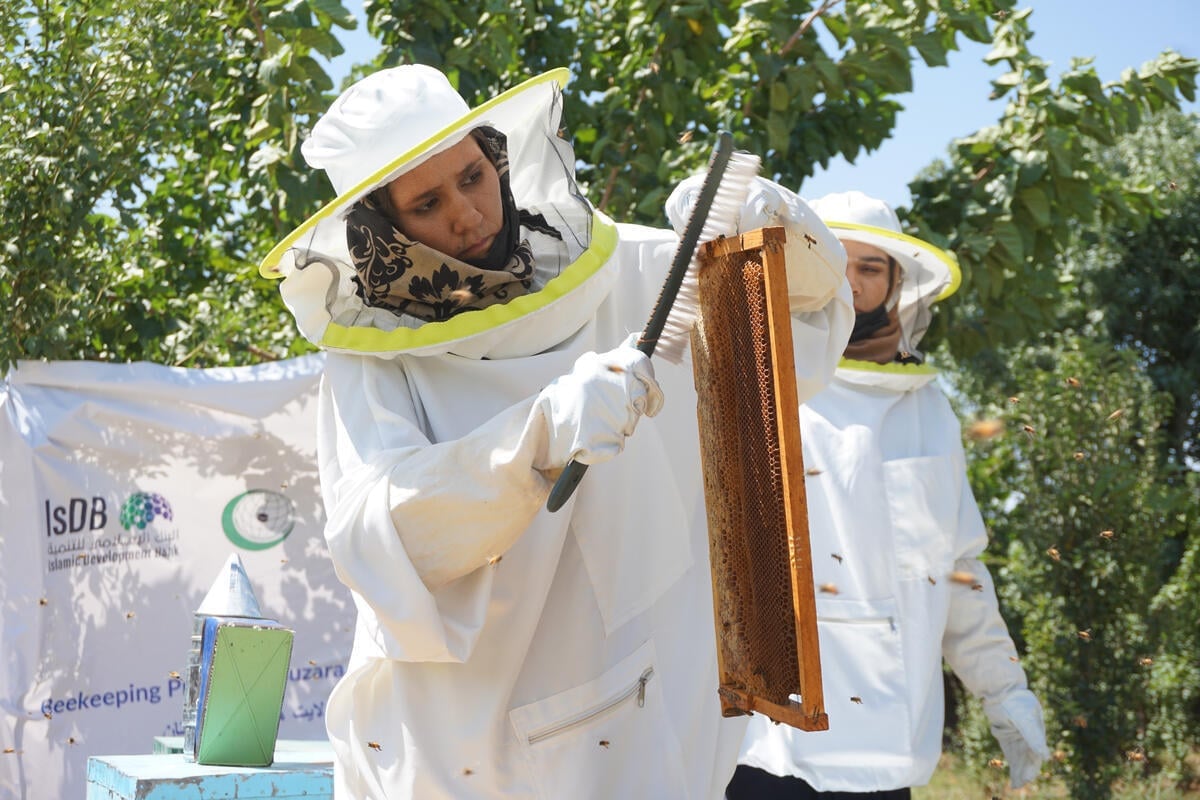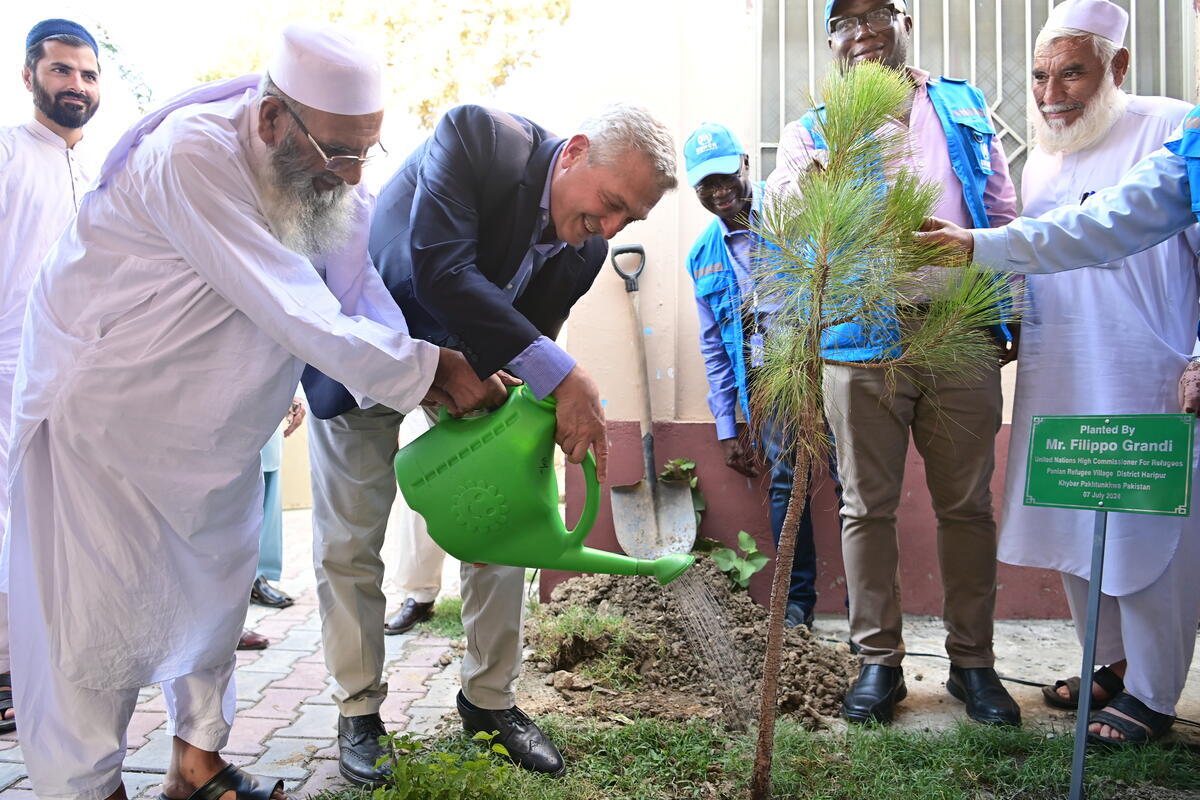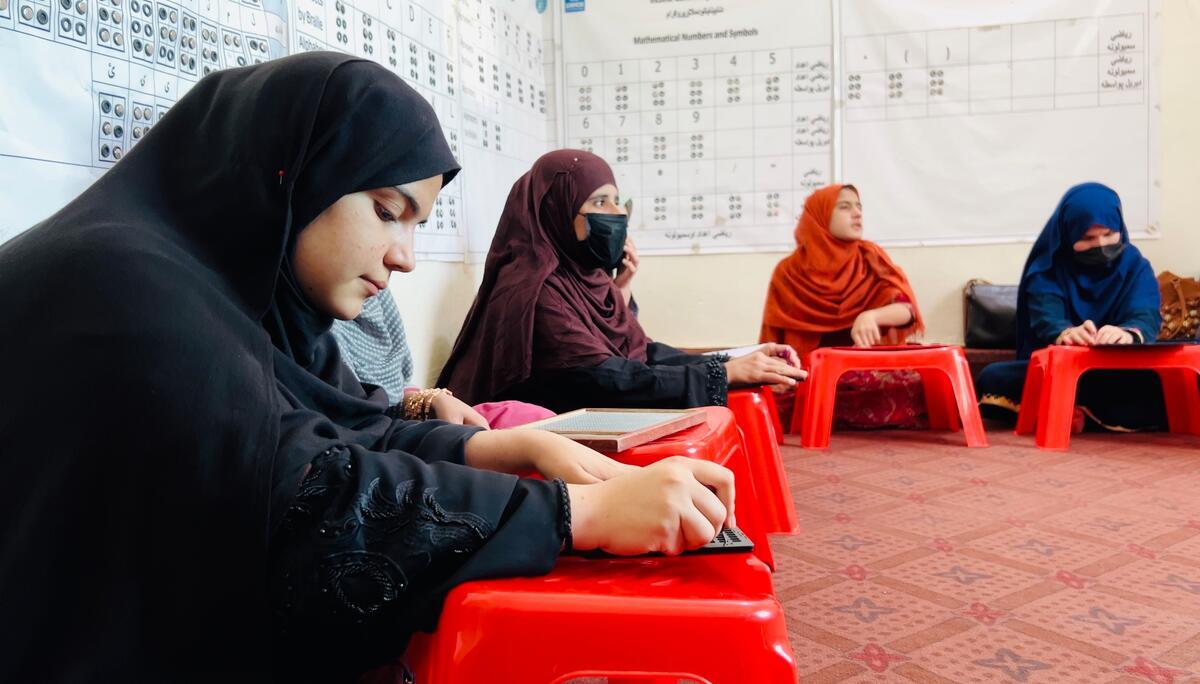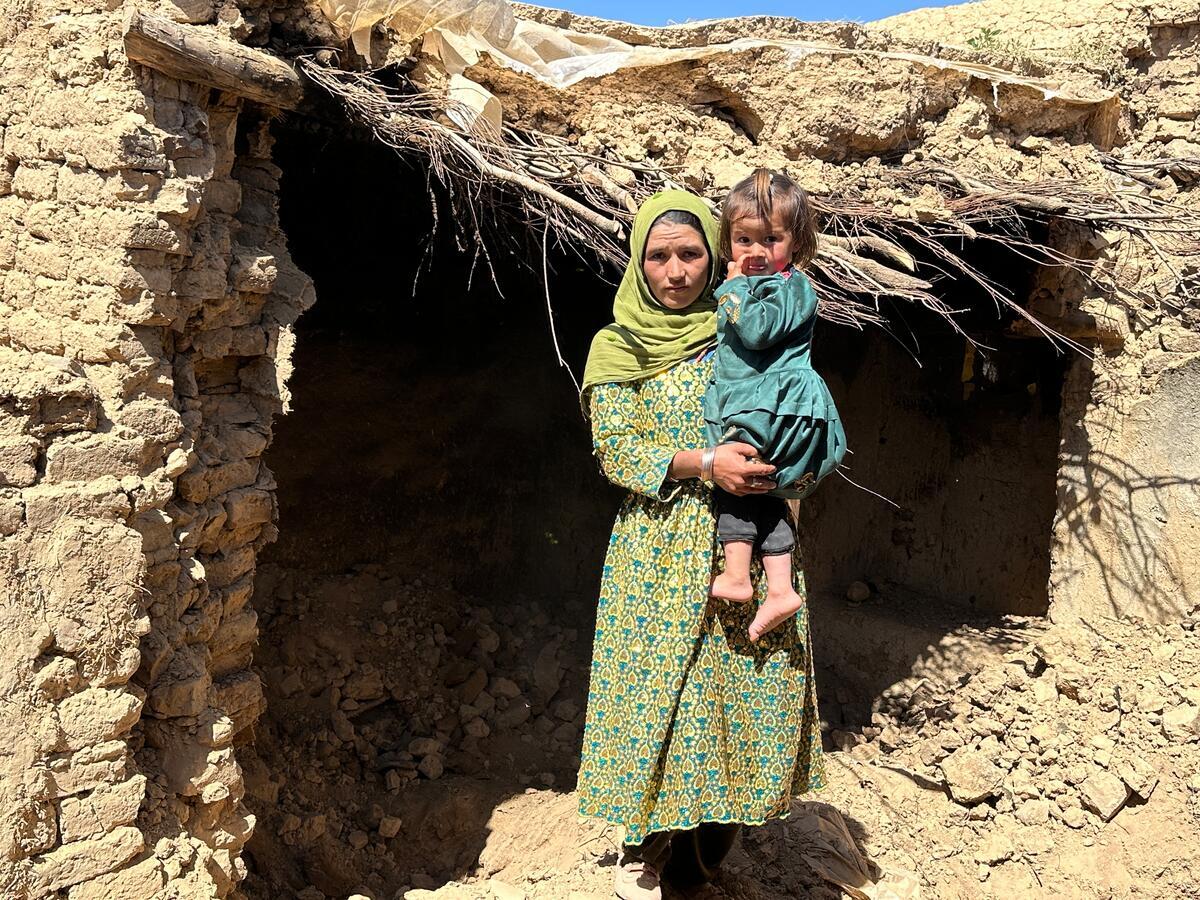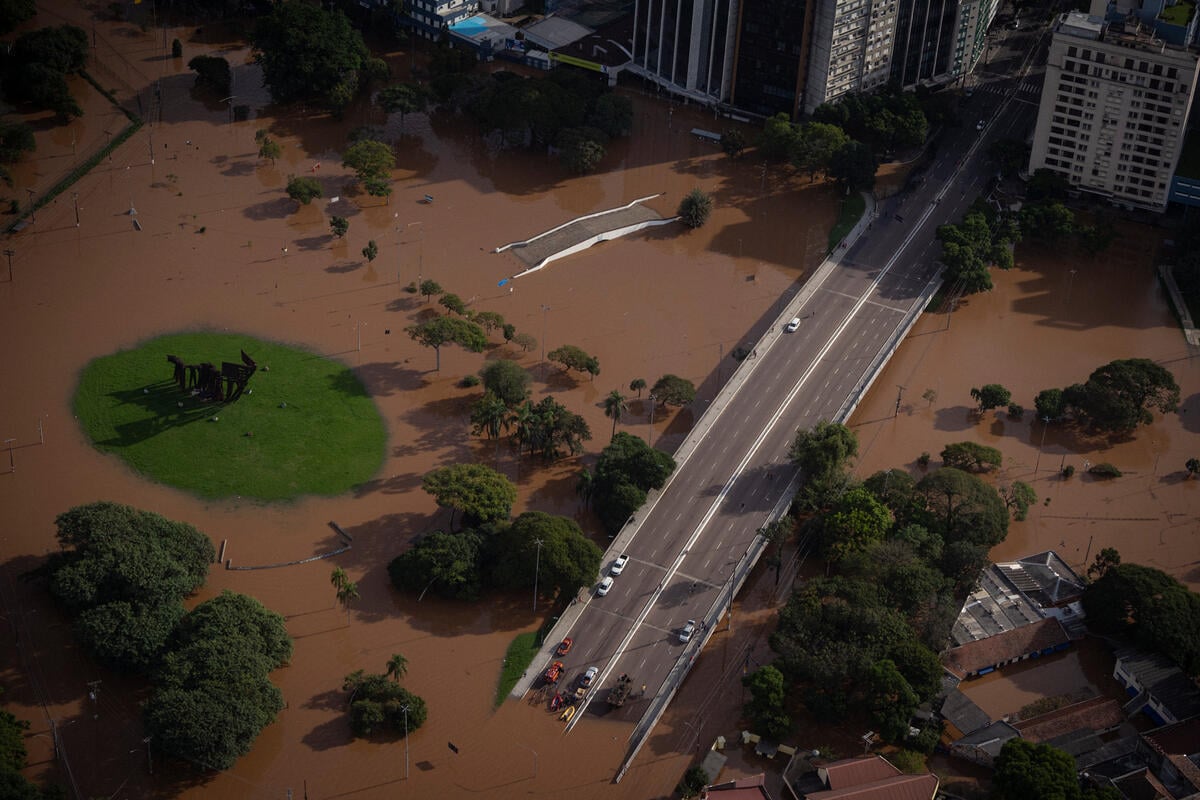Charity offers roof to needy refugees in Iran
Charity offers roof to needy refugees in Iran

MASHAD, Iran, August 8 (UNHCR) - As one of the holiest cities in Iran, Mashad attracts throngs of visitors, its population swelling from 3 million to 10 million during the pilgrimage season. That religious atmosphere has also spawned charities which provide a lifeline to some vulnerable guests who have been living there for years.
Mashad is home to an estimated 133,000 Afghan refugees who fled their country in several waves: during the Soviet invasion of Afghanistan in the 1980s, the devastating civil war that followed their departure, and the Taliban regime. Most of them are ethnic Hazaras, who are drawn here as Shiite Muslims.
Sharabanu Hosseini was forced to flee her hometown in Mazar-i-Sharif, northern Afghanistan, when she was 17. She and her family arrived in Iran in 1982. They settled in the capital, Tehran, while she followed her husband to Mashad. Eight years ago, her drug addict husband disappeared, leaving her and their seven children in his parents' care. Now 42, Hosseini works as a maid to support the family, earning $6 a day. The family also receives help from a local charity.
"Because of its religious background, there are many charities in Mashad who help refugees and other vulnerable people," said Alessandro Bolzoni, who heads the UN refugee agency in the northern Iranian city.
Imam Bagher is one example. In 2002, the Kuwaiti-funded charity started a township for the needy in Mashad. Some 200 Afghan, Iraqi and Iranian families - many of them headed by widows - currently live there in houses equipped with one bedroom, living room, kitchen and bathroom. They don't pay rent, only gas and electricity bills. In addition, they receive 300,000 Iranian rials ($32) per month, as well as clothing and rations every year.
The township also features a free clinic, a convalescence home for the elderly, a gym for the children, a mosque and a religious school. A formal school is located nearby, to which the charity offers a bus service and pays for education up to university level.
Despite these comprehensive services, many residents still suffer from the uncertainties and anxieties of refugee life. "The most common problems we find are high blood pressure, ulcers, depression and osteoporosis," said a doctor at the clinic, who sees about 50 patients per day. "Serious cases are referred to specialists, and UNHCR pays for half the cost. For depression cases, counselling brings some results. But some patients are illiterate and it's hard to communicate. They prefer pills to counselling."
Nearby, the convalescence centre is home to four men and 17 women, many of them abandoned. "We found an 85-year-old man living under a tree," said Imam Bagher's manager, Hossein Zahiri. "Another man suffered a stroke and is half paralyzed. The doctor comes to see him regularly. And everyone gets an allowance of 200,000 rials per month."
The spirit of community and volunteerism is high, as 20 women gather in the communal kitchen to prepare lunch for 800 people.
"We try to keep them busy and productive," said Zahiri. "We offer skills training in tailoring, embroidery and pistachio-cracking. In the summer we have cooking and baking classes. Beauty classes just started with 42 women."
Asked if there was a demand for beauty services in the township, one chador-clad woman joked: "In our culture, we may not have much money for food but we'll always have money to get our hair done at the salon."
With their basic - and sometimes supplementary - needs fulfilled at the township, is there any motivation for residents to leave? "Many of these Afghan refugees have been born and bred here, they don't know Afghanistan and don't want to go back," said Zahiri. "Residents can stay for as long as they need, often until their children marry and set up their own families outside."
The recent resettlement of 20 refugee families to Australia has freed up some living space, while another 50 apartments are being built to accommodate newcomers.
But not everyone wants help. "I don't go to any charities, I don't want my children to feel like beggars," said Razieh Mohammadi, who lives in the Afghan-dominated Golshahr area of Mashad and has been raising three children alone after her husband disappeared 12 years ago.
"I earn $2 a day stringing rosary beads and crack pistachios for 8 cents per kilogramme. My daughter helps. One of my sons works in a tailor's shop for about $1 a day," she added. "The other son is still in school. The teachers know about our situation and help out with food, clothes and shoes. It's hard, but we manage."
By Vivian Tan in Mashad, Iran


